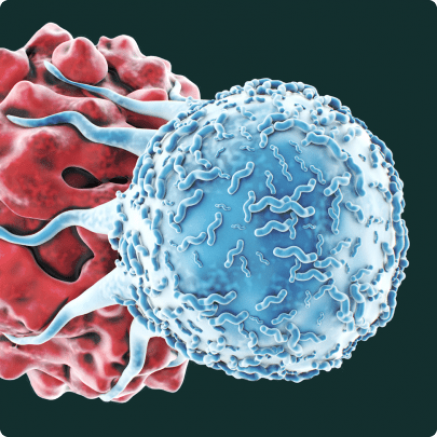Dual CD19 and CD20-targeting CAR T therapy offers broad immune targeting and potential to reset immune system
No neurotoxicity and only Grade 1 cytokine release syndrome in ongoing UCLA investigator-led study in lymphoma
West Hills, Calif., August 15, 2023 – ImmPACT Bio USA, Inc. (“ImmPACT Bio”), a clinical-stage company developing transformative logic-gate-based chimeric antigen receptor (CAR) T-cell therapies for treating cancer and autoimmune diseases, today announced the U.S. Food and Drug Administration (FDA) has cleared an investigational new drug (IND) application for IMPT-514, a bispecific CD19/CD20 CAR T therapy for the treatment of active, refractory systemic lupus erythematosus (SLE).
“FDA clearance to initiate clinical development of IMPT-514, the first bispecific CD19/CD20 CAR T therapy being investigated for the treatment of systemic lupus erythematosus, marks a pivotal milestone for our autoimmune disease clinical program,” said Sumant Ramachandra, M.D., Ph.D., president and chief executive officer of ImmPACT Bio. “The robust data package for IMPT-514 includes compelling Phase 1 safety data from an ongoing investigator-led study in lymphoma at UCLA demonstrating no neurotoxicity and only Grade 1 cytokine release syndrome to date. We have also successfully manufactured active product with cells derived from heavily treated patients with autoimmune diseases and are encouraged with the potent autologous B-cell killing properties and limited cytokine production displayed by IMPT-514 in vitro. The differentiated bispecific approach of IMPT-514 is designed for broader targeting of autoreactive B cells with the enhanced tissue and lymphoid organ penetration characteristic of CAR T cells. This offers the potential for a one-time treatment administration capable of resetting the immune response for durable remission.”
The company will evaluate IMPT-514 in an open label Phase 1b/2 dose escalation clinical trial in participants with active, refractory SLE that have been treated with at least two prior standard-of-care therapies and have a SLE Disease Activity Index score (SLEDAI-2K) > 8. The Phase 1 dose escalation cohort is limited to patients with active, biopsy-proven, proliferative lupus nephritis. Additional patients with and without active proliferative nephritis will be enrolled during the Phase 2 portion of the clinical trial.
About Systemic Lupus Erythematosus
Systemic lupus erythematosus (SLE), commonly known as lupus, is a chronic, often severe, systemic autoimmune disease. Systemic lupus erythematosus results from an immune attack on healthy tissues and the development of widespread inflammation that results in tissue damage throughout the body, with B cells known to play an early and central role in disease pathogenesis. It afflicts more than 200,000 patients in the U.S. alone, with up to 65 percent having lupus nephritis, the most severe manifestation of SLE which can result in end-stage renal disease and increased mortality. Despite various therapies used for the treatment of SLE, including approved biologics, there remains a significant unmet need for safe and highly effective therapies for this disease.
About IMPT-514
IMPT-514 is a CD19/CD20-targeting chimeric antigen receptor (CAR) T therapy that utilizes a potent bispecific CAR and a 4-1BB costimulatory domain. It is the same CAR construct as ImmPACT’s IMPT-314, which is under development for certain types of non-Hodgkin’s lymphoma. IMPT-314 and IMPT-514 are based on work by Yvonne Chen, Ph.D., associate professor, and Sarah Larson, M.D., principal investigator, both of the University of California, Los Angeles. In preclinical studies, IMPT-514 was successfully and efficiently manufactured from patients with lupus nephritis and systemic lupus erythematosus and showed potent elimination of autologous B cells and a moderate cytokine profile.
About ImmPACT Bio
ImmPACT Bio USA, Inc., is a clinical-stage company dedicated to the discovery of transformative chimeric antigen receptor (CAR) T-cell therapies that address key biological challenges in treating cancer and autoimmune diseases. The company’s logic-gate-based CAR T-cell platforms, licensed from University of California, Los Angeles (UCLA) Technology Development Group, are specifically designed to prevent antigen escape, overcome the immunosuppressive tumor microenvironment, and deplete pathogenic B cells. The company’s technology is based on the work of pioneering scientists Yvonne Chen, Ph.D., and Antoni Ribas, M.D., Ph.D., both from UCLA. For more information, visit http://www.immpact-bio.com.
Contacts for inquiries or additional information:
For investors:
InvestorRelations@immpact-bio.com
For media:
Kathy Vincent
Greig Communications
kathy@greigcommunications.com

